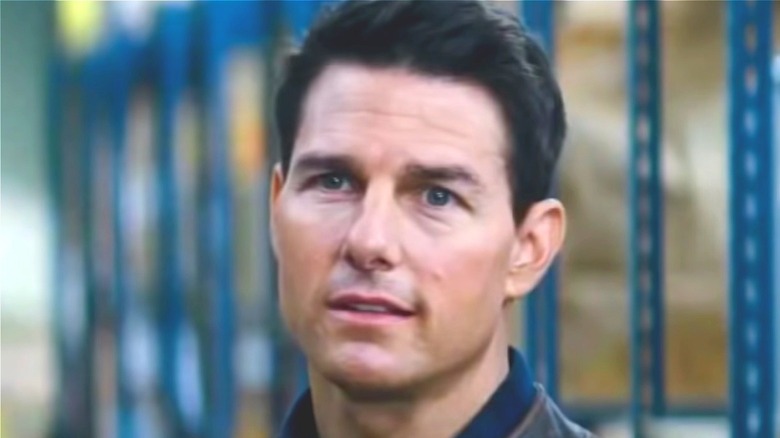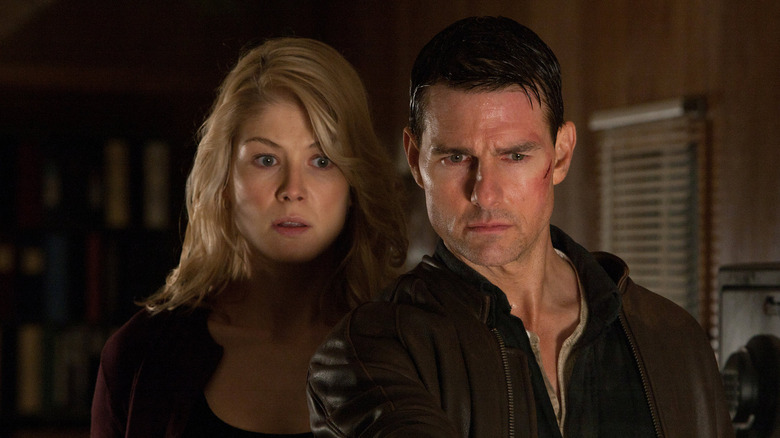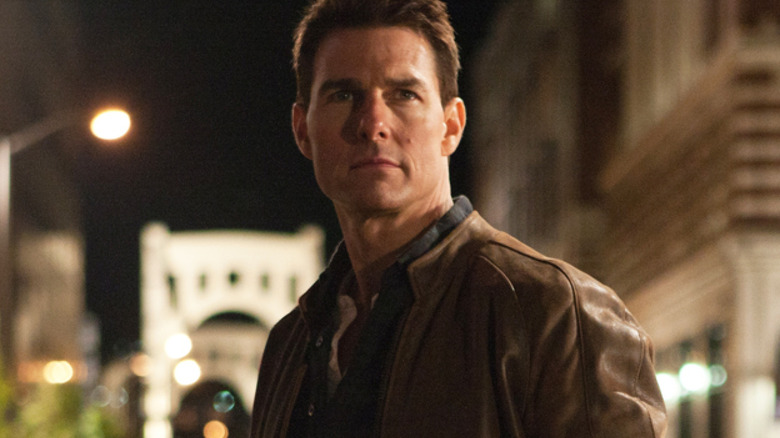The Ending Of Jack Reacher Explained
In the 2012 film "Jack Reacher," a horrible crime is committed in Pittsburgh: five people are coldly executed by a sniper. The case seems open and shut when the police discover a man named James Barr (Joseph Sikora), a former U.S. Army sniper with damning evidence in his home and his van. The authorities make a simple offer to Barr: a full confession and life in prison, or a guaranteed death sentence in court. Barr doesn't say a word, but takes a pen and a notepad and writes three words: "Get Jack Reacher."
Reacher (Tom Cruise) arrives in Pittsburgh after hearing of Barr's arrest for the murder. Reacher is a wandering drifter and former Army police officer who knows full well what Barr is capable of, but doubts he committed the actual crime. Joining forces with Helen Rodin (Rosamund Pike), Barr's defense attorney, the two realize that the killing spree is actually part of a far more insidious plot.
The full confession of an innocent man
In "Jack Reacher's" final scene, Barr had been attacked in prison and left in a coma, one he awakens from with no memory. However, he believes that he must be guilty of the shootings. While innocent of the crime he was framed for, he talks about how he would have committed the crime exactly as Reacher himself described it during his investigation. Barr then demands to face his punishment. He is eager to own up to this crime because of his previous encounter with Reacher years before, where he had gone on a killing spree during his tour in Iraq but wasn't prosecuted for the crime because his victims were suspected of multiple instances of sexual assault.
As Barr confesses, he breaks down in tears, not of remorse or regret for his crimes, but for the fact that Reacher knows where he is, and if he gets away with this, he will find him and kill him. After all, Reacher doesn't care about the law — he only cares about what's right. As the film ends, we see a man verbally and physically threatening his wife on a bus, and Reacher quietly rises from his seat and starts moving toward him, further reinforcing his personal principles.
The deconstruction of the Action Hero
In "Jack Reacher," we see a take on the implacable, unstoppable action hero that's quite different from other examples within the genre. Cruise's Reacher isn't quick with quips like John McClane or a nearly indestructible powerhouse like Dom Toretto, but a quiet and determined operator who will absolutely, positively kill you dead if you're outside of his definition of right or wrong. The world of "Jack Reacher" isn't one where a person can fly into the windshield of a speeding car and walk it off: the violence is quick, lean, and brutal. Jack Reacher isn't a maverick cop or a charming rogue, but a trained killer who is very, very good at administering pain and executing his opponents quickly and efficiently.
The film illustrates that a man like Reacher, someone so close to what we conceive of as the archetypal action hero, one operating by his own code and acting as the ultimate arbiter of right and wrong, would be a terrifying figure even if he's ostensibly the "good guy."


